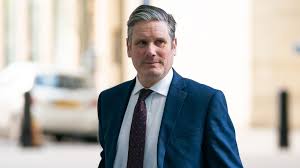By Ben Kerrigan-
Labour leader Sir Keir Starmer has made a baseless request to the British government for its plan to publish an exit strategy from the coronavirus lockdown this week.
The government has already said that the current lockdown will end when the scientific advice suggests it is safe to end the lockdown. Dominic Raab is also expected to announce on Thursday that social distancing measures will continue.
Sir Keir said Labour was asking for the government to be transparent, but the transparency he requests has already been given. Sir Starmer appears to be making noise written to Dominic Raab, who is deputising for Prime Minister Boris Johnson, to ask the government to set out an exit strategy to maintain trust and to ensure that arrangements are in place for it. He said: “We’ve got to have the trust of the public,” Sir Keir told BBC Radio 4’s Today programme, adding that it was “inevitable that the lockdown will have to continue”.
“For that trust there needs to be transparency and openness they need to know what the thinking is on when lockdown will end.” He repeated known plans for mass testing and tracing to be amongst the options for ending the lockdown.
“If that is right we need the government to say so because decisions need to be taken now to make sure that the number of tests that are needed and that the arrangements are in place so they can be implemented at the relevant time.” He said that he believed “in principle” schools should be amongst the first institutions to restart following easing of lockdown measures.
Agreeing that it would be wrong to put a time on when schools should re-open, he said:
“Until we know the curve is flattening, then I’m afraid we have to stay in the conditions we’re in,” he said. In his letter to Mr Raab, Sir Keir said millions of people had “played their part” and made sacrifices and “in return, the government needs to be open and transparent with the public about how it believes the lockdown will ease and eventually end”.
Sir Keir warned the “silent pressures” on communities across the UK “cannot be underestimated”, and said that to maintain morale and hope “people need a sense of what comes next”.




